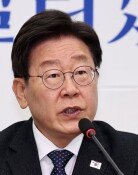Foreigners Experience Difficulties in Living in Korea
Foreigners Experience Difficulties in Living in Korea
Posted July. 04, 2004 22:14,
A few days ago, the medical bill was over 100 thousand won for a simple treatment for a cold at a hospital. Koreans didnt seem to pay that much and I wonder whether hospitals charge high prices because I am a foreigner.
At the Seoul Foreigner Help Center next to the main hall of city hall at 2 p.m. on June 29, an American who looked to be in his or her 40s began complaining as if dumbfounded.
About 30 minutes later, a Caucasian woman who stopped by the center complained, saying, I have taught English at a institute in Seoul for two years and now I want to go back, but a Korean director of the institute is refusing to give me proof of tax payments for the period.
The official number of foreigners who reside in Korea and who have received proper foreigner registration cards from the Ministry of Justice amounts to around 270 thousand, and if American forces, their families and illegal aliens who are not registered as foreigners are added, the estimated number of foreigners living in Korea comes to over one percent of the whole population of Korea.
However, the living conditions for foreigners residing in Korea are extremely terrible, which is not compatible with the globalization era.
--Increasing public petitions from foreigners
The average number of foreigners visiting the center in person a day is from 10 to 15. Service representatives are almost exhausted everyday after taking care of consultations by telephone and email.
We had limited our consulting on investment, but expanded the service to include living-related matters starting from June, 2003, and the number of foreigners using the center is increasing, said Choi Byung-hoon, head of the Help Center.
The number of consultation cases received at the center last year was 1,196, which is more than twice the figure of 2002 (506 cases). This year alone, the number of cases up to May is 789. Living-related complaints take up 70~80 percent of all cases except for consultation on investments.
On the five-year plan for improvement of living conditions for foreigners designed by Invest KOREA of the Korea Trade-Investment Promotion Agency (KOTRA) in March, listed are as many as 102 complaints raised by foreigners.
Overall living conditions, including education, housing, medical care, transportation, immigration, and access to the Internet are pointed to as inconveniences.
Not only inconveniences caused by different systems and customs in Korea, but also special discriminating practices, such as the practice of submitting two years of monthly rent in advance like a deposit, which is required of foreigners just because they are foreigners, are ubiquitous.
Even though Korea has achieved some degree of globalization in going abroad, it has still a long way to go for globalization in embracing foreigners inward, said foreigners residing in Korea.
--Still a long way to go
Seoul City has been inviting foreigners and listening to their complaints to address these problems since 2000. Some municipalities also have opened their own reporting centers and are operating.
However, the centers are not functioning properly because problems are hardly solved, and reporting centers in local areas lack publicity.
An official in the International Cooperation Division of Seoul City admitted, The same complaints regarding visas, transportation, education, and environment are raised every year without being solved, due to the lack of cooperation from government agencies involved and their passive attitudes.
Jae-Dong Yu Soo-Jung Shin jarrett@donga.com crystal@donga.com







